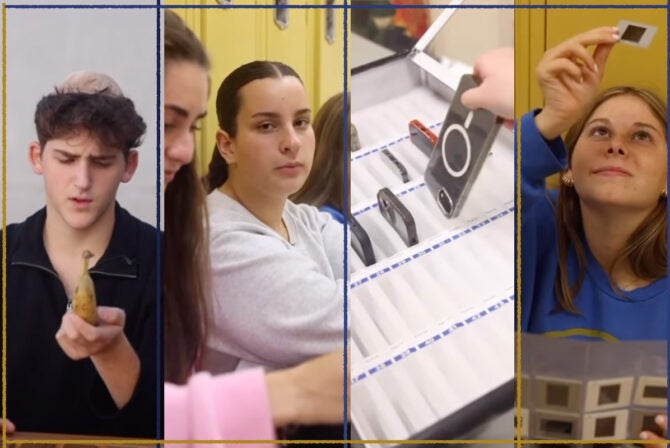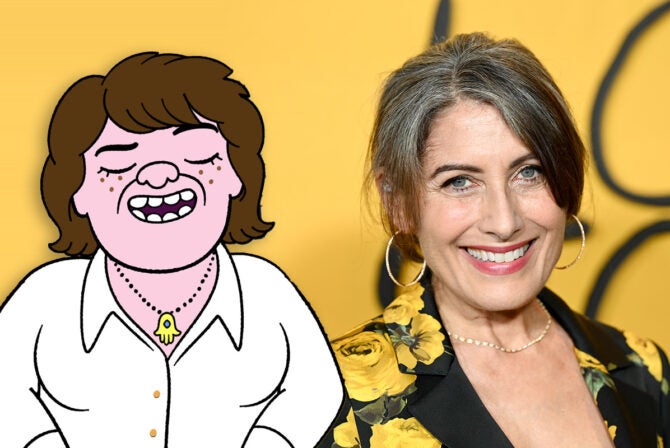I speak all over the country: at synagogues, schools, and homes, at conventions, commencements, and conferences. I love speaking about my journey to being observant-ish, being female, being a scientist, being a mom. I love speaking and I am excited for each and every talk I do.
But the talk I am giving on June 5 at the Riverdale Jewish Center has my heart all aflutter. No, it’s not just that one of the Maccabeats lives in Riverdale and he may come and I may sleep over at his parents’ house and have a slumber party with his sister after the talk (because all of that is totally happening). I’m all excited because the cause for which I am speaking is so fantastic, so amazing, and so meaningful that I literally can’t believe I get to be a part of it.
Remember my post about Jewish sex? And then my post about the mikveh? Well, I am speaking at the Riverdale Jewish Center to raise money to fund the first ever synagogue-employed Yoetzet Halacha, aka “Woman Who Can Answer Halachic Questions About
Taharat HaMishpacha
” including sex, touching, fertility, infertility, mikveh, and everything else you can imagine about the halachas (traditional Jewish laws) regarding sexual and physical intimacy.
You may not be as excited as I am yet, so let me explain more.
The halachic rules and restrictions surrounding the menstrual cycle and 7 “clean” days after are rich with meaning and purpose. Same goes for any other time you might bleed, such as when the hymen breaks, in labor, and when you have a medical condition that causes bleeding outside of your normal menstrual cycle.
Well, what happens if you have spotting on one of those days? And what if it’s just a teeny tiny bit of blood? What do you do? Do you start counting again and miss the potential for sex when you’re ovulating!? When is sex with your husband okay again?
What if you are about to get married and you are learning about the rules of Taharat HaMishpachah and you have never even touched a man’s hand… you probably want to know what to expect on your wedding night and after your wedding night, for that matter, right!?
What if you can’t get pregnant and you are concerned your cycle is making you “halachically infertile?” What if after having a baby, you are confused about the restrictions surrounding your emotional and physical needs and can’t manage them on your own?
Well, for all of Jewish history, you would ask a rabbi. You would take him your problems, and you would take him (when halachically necessary) evidence and descriptions of bodily fluids and emotional concerns and he would help you decide what to do, how to count, when to see a doctor (should there be a medical problem indicated), etc.
For many women, this works. For some, it doesn’t. And for those of us who want to live within the halachic structure, we don’t want to throw the rules away. Enter the woman with the title Yoetzet Halacha (Jewish Legal Advisor). Yoatzot Halacha (that’s the plural) are chosen because of strong community leadership, extensive Torah knowledge and expertise, and significant religious commitment. They are certified by a group of Orthodox rabbis to answer all questions about Taharat HaMishpachah. They are trained by experts in psychology, gynecology, infertility, sexuality, and family dynamics.
Riverdale Jewish Center is the first synagogue EVER to employ a full-time YH. Her name is Bracha and I sort of love her already. She answers on average five calls a day, totalling 1,000 a year. She holds classes, lectures on important topics affecting intimacy in marriage, and even is part of a general Women’s Health education. You love her too, right!?
There are some men (and women!) who think women need to get over being uncomfortable and talk to men about all of these things openly, as we have for thousands of years. Many have suggested that we have our husbands take our questions to a rabbi if we feel uncomfortable doing so ourselves. Um… no thanks. Let’s just have a brilliant, learned, competent, and compassionate WOMAN do it, ok? And that way, it opens up a whole new level of communication, since asking questions woman to woman is simply definitionally different from asking a man. It’s more intimate, it may bring women into the discussion who otherwise would shy away, and some would argue, it’s simply much more tzanuah (modest).
The Jewish community consists of a cadre of incredible skilled minds and hearts: rabbis, mohels, chazans (cantors), and teachers. A YH is another branch of a profoundly mighty and holy community, and I am honored to be a part of an event held by the synagogue who is making this important statement.
I hope to see you on June 5th at the Riverdale Jewish Center. I’ll be speaking on Jewish Women’s Values but my talk is for men, too. If men are uncomfortable with coming to my talk, I suppose they could send their wives and they can fill their husbands in later. Sounds kind of silly, though, huh? Thought so.
While we’re on the subject of men, supporting a YH is for men, too. Men are part of Taharat HaMishpacha, too, and we need strong men (and possibly a Maccabeat or seven?) standing next to their women and advocating for a new openness and comfort in the community that nurtures them, their marriages, and the Jewish people at large.
If you can’t come to the talk and feel as excited as I am to be a part of a dynamic and powerful movement by the women of traditional Judaism and the synagogue that had the vision to be the first to have a Yoetzet Halacha on staff, consider visiting the link to the event and lending your support.
Get the full scoop on the traditional Jewish take on sex, what it means to go to a mikveh, and other speaking engagements I’ve recently done.







